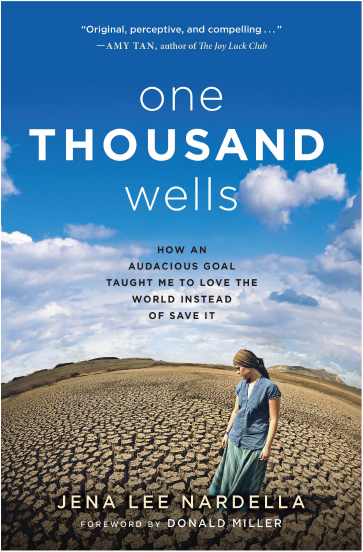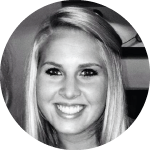Summary
After touring with Jars of Clay for a while, Jena Lee Nardella flew to Kenya with Joel, a Blood:Water volunteer to investigate possible partners for Blood:Water and strategize for the 1000 Wells Project.
While in Kenya, Jena and Joel learned the importance of doing work with the poor community, not for them; that it would be necessary to incorporate proper sanitation and hygiene alongside clean water; and that the secret to change in African communities was in the “experience and knowledge of the poor”—Africa’s hidden heroes.
Based on these lessons, Jena and Joel determined that Blood:Water could best benefit Africa by partnering with and supporting African-led organizations that were already fighting against the HIV/AIDS and water crises. By championing Africans, Blood:Water could allow them to be the change their communities needed, while instilling dignity and ownership.
After sharing this vision upon their return to the states, the band jumped on board and shared it with their crowd at Six Flags Adventure Park in New Jersey. By asking each audience member to donate one dollar, they raised enough to dig two wells. From then on, the band continued to do this at the end of each concert.
The 1000 Wells Project officially launched in February 2005. Within three months, $20,000 was raised by Jars of Clay concert-goers. Then, an astounding $250,000 was raised through a telethon hosted by K-LOVE. Following the radio event, Jena was overwhelmed to open Blood:Water’s mailbox to find another $50,000.
When Jena and Joel returned to Africa to begin the 1000 Wells Project, they immediately witnessed ways a Blood:Water-funded well had affected 500 people living in the Karao village. They visited three villages each day, and the lessons from their previous trip were affirmed. As Blood:Water began to partner with more organizations in various regions of Africa, Jena’s conviction that “true change comes only when Africans are free to be the heroes of their own stories” was confirmed time and time again.
Powerful Lines
- “All things God touches are sacred, even if they are broken.” (74)
- “Making an impact with your life is risky. Missional vocation will break you, taunt you, do whatever it can to test whether you mean it when you say you want to serve the poor or provide clean water in Africa or conquer a mountain. We would need grace to carry us through”. (80)
- “Promises become tools for oppression—words the oppressor uses to relieve his or her own sense of guilt in the moment, received by the oppressed as yet another empty gesture.” (90)
- “You do not provide the clean water for a community before they know how to care for it and make the most of it.” (94)
- “Every day I spent in Kenya, I learned more of the complexity of African life: resilient communities caring for one another and trying to make life better despite extreme poverty and disease. I began to realize that the secrets of change are not found in places of power or advantage. They are hidden in the experience and knowledge of the poor.” (98)
- “If we ever had resources or influence to be a part of this HIV/AIDS and water fight, we would partner with the communities and their existing leaders. We would champion them, listen to them, humanize the experience, and try our best never to strip dignity from another. Our business model would recognize that emerging heroes in Africa know their communities better than we ever could.” (101)
- “Through giving, people were seeing themselves differently, seeing their lives differently. Generosity has a redemptive nature. It is a dual rescue.” (124)
Questions to Ponder
- Jena discusses the struggle Jars of Clay had with the Christian music industry, saying that it “sometimes placed greater value on a product’s Christian appearance than its quality.” How does the parallel with the long-winded, sustainable work Blood:Water seeks to accomplish compare to the easier, seemingly more efficient tactics other organizations might use in efforts to bring service to the less fortunate?
- After returning to the United States, Jena reflects on meeting Joseph, an orphan in the village of Karao, and the journey she took with him to gather water. She recognizes that she was able experience life in his shoes, but that she had the privilege to put her own shoes back on and return home when she was done. She then remembers that Jesus was the greatest example of what it means to walk in another’s shoes, and says that “to be present with our brothers and sisters in Africa, to understand their suffering, we need to risk being fully human with one another.” As Christians, what does it mean to be fully human with one another? What does it mean to attempt to relate to others’ burdens and hopes?
- As Jena reflects on her flight from Nairobi to Kisumu, she says that she came to understand that “although working in the developing world is often lauded as self-sacrificial, if you have an ounce of wanderlust in you, the work is never purely altruistic.” When seeking to help the less fortunate, be it on a domestic or overseas level, how do we balance altruism with our own desires rooted in the curiosity and exciting nature of discovering a new place? Is there a point at which we must be honest with ourselves and check the condition of our hearts as it pertains to our motivations behind a given service opportunity?
- Jena often comments on her skin color and cultural differences compared to the Africans, sometimes calling it her “otherness,” questioning whether or not she will ever be able to blend in. In many service environments, we deal with people who come from different cultures, ethnic groups, and upbringings than ours. What steps must we take in an effort to find common ground with those we are serving despite our differences? Is it possible to find that common ground given the nature of a service situation?


